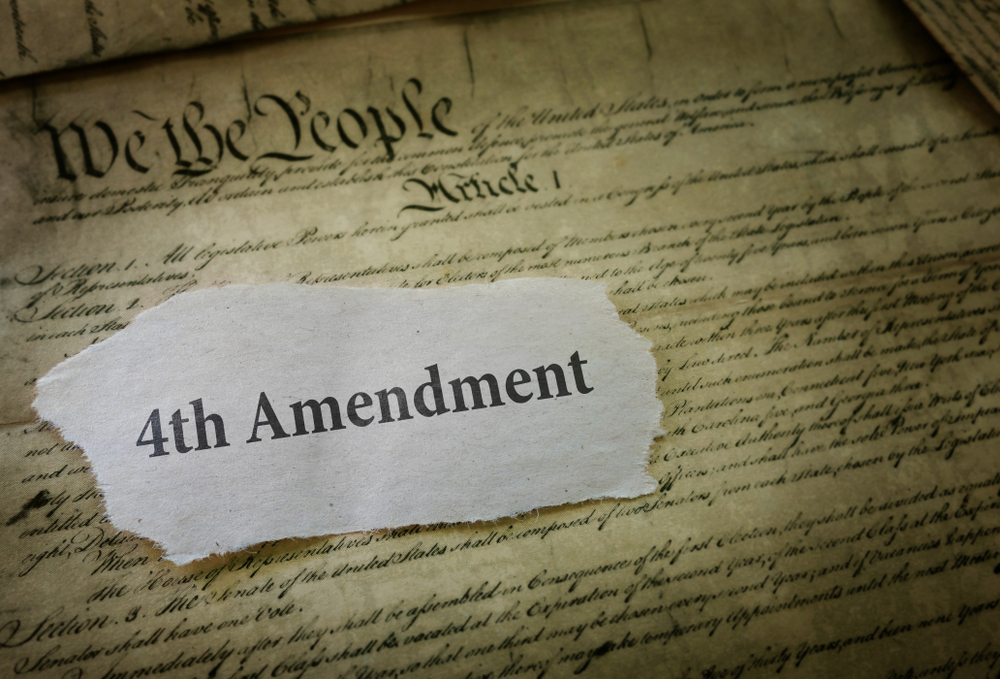Florida Search and Seizure Laws Explained

Know Your Rights Regarding the Fourth Amendment – Search and Seizure
Florida search and seizure laws protect people from unreasonable searches by local, state, and federal law enforcement officers, based on state laws and the Fourth Amendment to the U.S. Constitution. These laws limit police officers’ power to search people and their property, make arrests, or confiscate items and contraband (such as weapons or illegal drugs).
In practice, police officers are required to have probable cause and obtain a search warrant before searching people or their property unless there’s a valid exception to the search warrant exception. Any illegally-obtained evidence may not be admissible in court.
What is Legal Search and Seizure?

Law enforcement or government agencies should conduct searches and seizures as provided by the law and with regard to a person’s Fourth Amendment rights. This means they must have proper probable cause and a warrant to conduct a reasonable search.
Your Reasonable Expectation of Privacy
Protection from illegal searches and seizure has its origin in Florida state law and the Fourth Amendment to the U.S Constitution. These laws provide that citizens should not be subjected to unreasonable searches and seizures. But this only applies to properties in which you have an “objectively legitimate expectation of privacy.” This means that police officers cannot randomly search you, your property, or other areas where you don’t expect intrusion. Also, having a reasonable expectation of privacy means that the police may search or seize that property if they have a valid warrant or an exception to the warrant requirement applies.
Here are examples of places or items you have a legitimate expectation of privacy for:
- Your home or office
- A hotel room
- Your computer, cell phone, and other electronic devices
- A tent or tarp
- A bag, purse, or briefcase
- Your private boat
Conversely, you do not have a reasonable expectation of privacy for the contents of a stolen vehicle, abandoned property, or property inside a vehicle in which you’re a passenger. In some cases, police have been allowed to search through the garbage.
Florida Search Warrants
A search warrant is a court order that allows the police to conduct a search in a specified location, at a specified time, and to look for specific materials. Warrants grant police the right to search and seize items, documents, or papers used as a means of or in aid of the commission of a crime.
To be valid under Florida Chapter 933, a warrant must be authorized by a judge within the county requested based on the probable cause standard, which is a law enforcement officer’s reasonable belief that you have committed, will commit, or are currently committing a crime. Probable cause should be based on facts and not gut feelings, guesses, or intuition. The officer must also complete an affidavit pertaining to the accuracy of the information provided to obtain the warrant.
Exceptions to the Search Warrant Requirement in Florida
There are circumstances in which law enforcement may search or seize a place or property in which you have a reasonable expectation of privacy, even if they do not have a search warrant. These include:
- Consent: If you or someone else with authority over the premises consents to a search without being coerced, you waive your Fourth Amendment rights against unlawful searches. Any items or evidence of a crime discovered can be legally seized.
- Plain View Search: The plain view exception says that an officer can legally seize an item that is clearly visible and incriminating.
- Terry Stops: This is a brief detention of an occupant of a car if an officer has reasonable suspicion the person being searched may be dangerous and has weapons stored in the car.
- Search Upon a Lawful Arrest: Florida courts hold that law enforcement officers are justified to conduct a search in connection with a lawful arrest. This can be done to protect the safety of the arresting officer or protect evidence that might be destroyed.
- Automobile Searches: If the police have probable cause to believe that a vehicle contains something illegal or evidence of a crime, they can search the vehicle during a traffic stop.
- Emergency Situation: This exception applies when law enforcement officers believe there’s an immediate need to search a place because there’s imminent danger to life, an important piece of evidence would be destroyed, or to provide assistance to a person who is seriously injured.
What Happens When a Search or Seizure Violates the Fourth Amendment?
Any evidence seized due to unreasonable search and seizure is generally inadmissible in court under the “exclusionary law.” This means that the evidence may become unusable. Your criminal defense attorney can challenge the evidence by filing a Fla. R. Crim. P. 3.190 Motion to Suppress Evidence in Unlawful Search before the start of your trial.
Additionally, the “fruit of the poisonous tree” rule prevents the use of evidence obtained through illegal search and seizure operation. This mainly applies to evidence found as an indirect result of an unreasonable search. For instance, if the police illegally search a house and find a piece of paper with the address of a warehouse where a suspect’s drugs are stored, the evidence found at the warehouse may be inadmissible because the address was discovered in an illegal search.
Bottom Line
There are important limitations on law enforcement when it comes to search and seizure operations. If a search or seizure violates your Fourth Amendment rights, the evidence against could be thrown out, making a significant difference in your case. If you think you need legal representation, contact the criminal defense attorney Jessica Damoth for counsel first.

